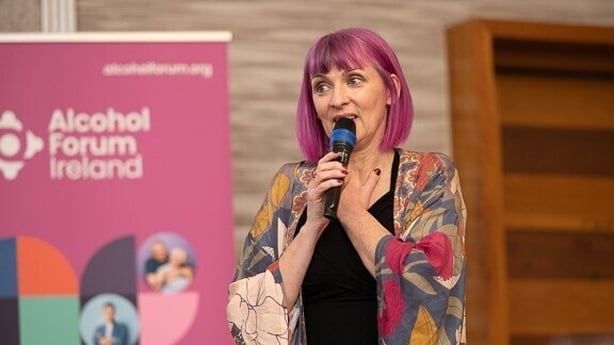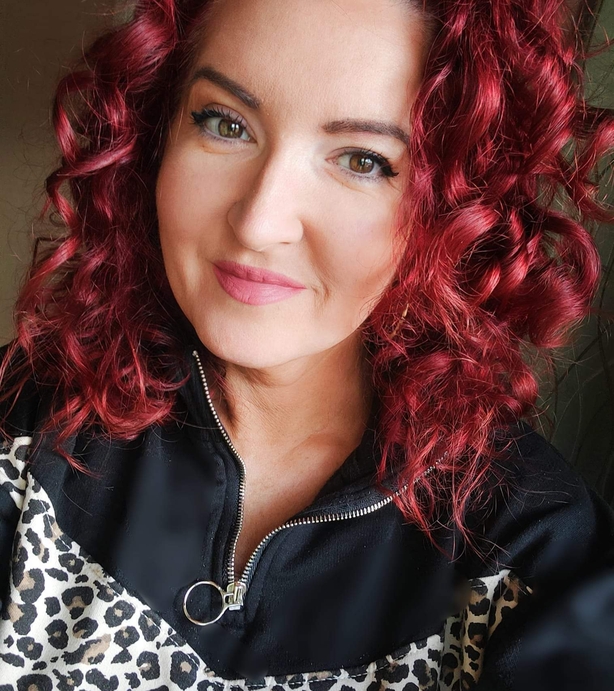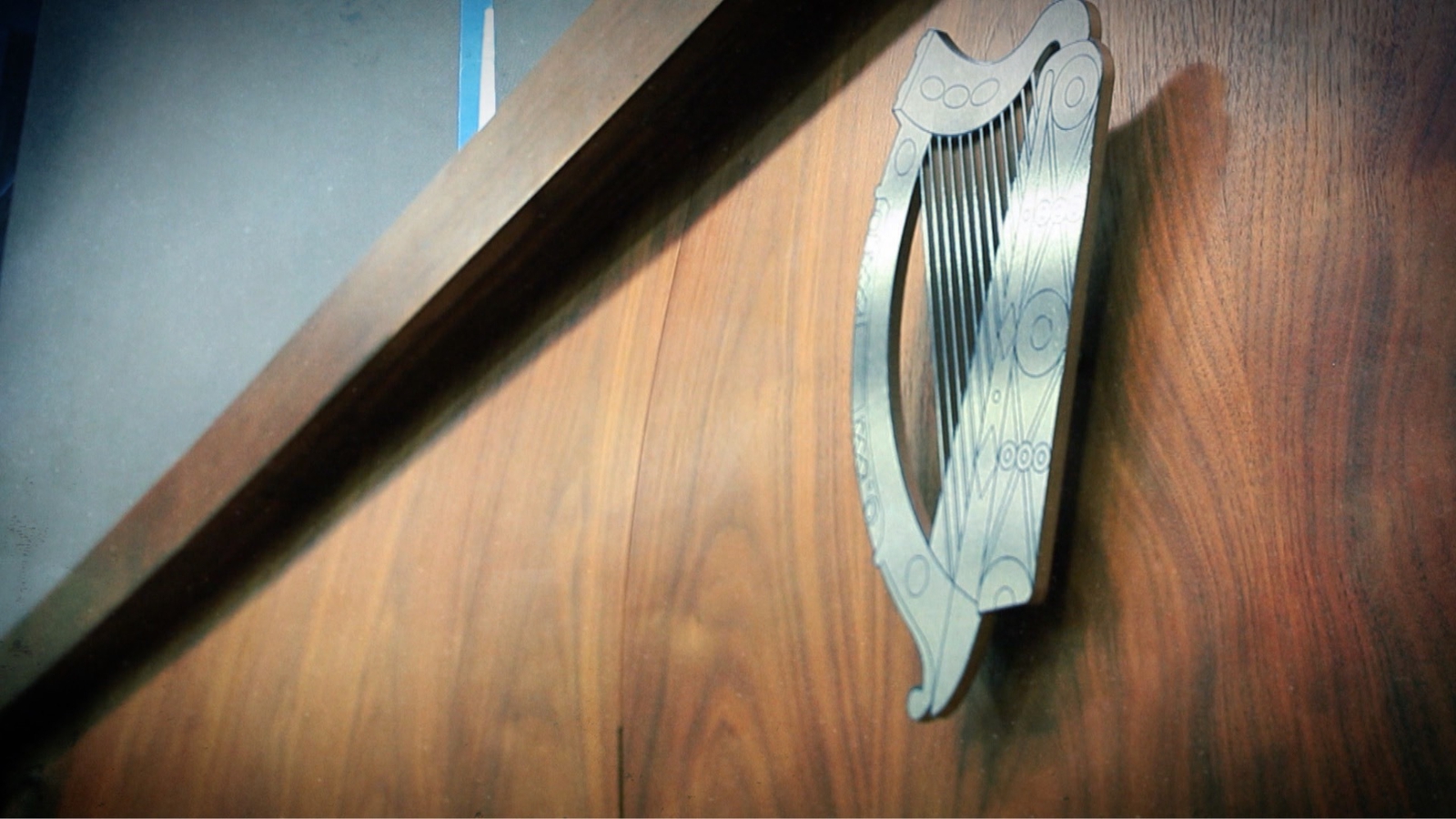More women seeking help for ‘problem drinking’

Fiona O’Neill from Co Tipperary wants to warn others of how a bad habit can quickly lead to a serious problem.
“The same way as someone would have the good habit of going to the gym every day, I was looking forward to my drink every day,” she recalled.
“I was in work and the longing to get home for a drink at 3 o’clock in the day, and it just started to creep in unknown to me.”
She said the impact of daily drinking “fed” into all aspects of her life from work to family.
“I was in such a dark place for my boys.
“I was getting into a car still with alcohol in my blood and anything could have happened. I beat myself up over that sometimes,” she said.
Alcoholics Anonymous (AA) said at this time of year it would usually see a rise in the number of people seeking support, but the increase so far this month has been significant.
It also said more women are seeking support for “problem drinking” and attending AA meetings.
A spokesperson said its helpline received 139 calls in the first two weeks of this year compared to 30 calls during the same period last year.
Other organisations who support people with alcohol addiction have also witnessed this worrying trend.

Paula Leonard, Chief Executive of Alcohol Forum Ireland, said for women, it is rarely just an alcohol problem “on its own”.
“There is usually something else quite complicated that needs to be dealt with in a therapeutic setting,” she said.
She believes services need to become more “trauma informed” in relation to the issues around women’s presentations.
“Women often use alcohol for self-medicating and for dealing with trauma..
“There are more complex reasons for women in relation to alcohol. We are seeing a lot of work in relation to that but there is still some way to go,” she said.
Hitting rock bottom
Barbara, who has been attending AA meetings for over 18 years, said she sees similar patterns occurring when people first reach out for support.
She said: “What happens a lot is they come into an AA meeting a week or two after Christmas and think ‘yes I can do this, this is ok and I don’t need these people really,’ so they go away and very quickly they fall back.
“And then the rock bottom comes. When the realisation hits that they have gone back to it, that’s a horrible moment.”
It is a stark memory for her as she endured a “long-term” struggle after becoming a mother.
She said: “I drank in order to try to cope.
“So, my daughter’s first six years were awful. All the things I promised I would never do, I won’t get into a car with a drink on me, I won’t go to work with a drink in me.
“All those things happened. You have your morals and every time you go against all that.”
For Fiona, it took a friend to identify she had a problem.
Now in recovery for two years, she explained that counselling has been a key part of the process to stay off alcohol.
All of our celebrations revolve around alcohol, and we have heavy advertising and marketing that supports that. We have a culture that supports that.
She acknowledges that while people have different relationships with alcohol, she is a “firm believer” that cutting it out is crucial if you have anxiety or mental health issues.
“If people tried to cut out alcohol as the first step, they can cope with life better. Life is still hard, but you can just cope better,” she added.
She would also be in favour of zero tolerance towards alcohol implemented here and shares concerns around advertisements such as “bottomless brunches and prosecco on tap”.
Ms Leonard believes “heavy drinking” has been normalised in Ireland.
She said: “All of our celebrations revolve around alcohol, and we have heavy advertising and marketing that supports that.
“We have a culture that supports that. So, it can be difficult for people firstly to know they have an issue and secondly to take that brave step and say, ‘I need some support’”.
Along with the mental health issues associated with alcohol use, doctors want more awareness around the physical damage being caused, particularly effects on the liver.
Dry January ‘can be problematic’
Dr Hugh Gallagher, a GP who specialises in addiction, has warned how colleagues in hospitals are increasingly seeing more women, including younger women presenting with significant health problems associated with alcohol, including psoriasis of the liver.
“The simple fact is that women are more susceptible to the ill effects of alcohol, and they are going to be impacted by it and their organs will be more affected.” he said.
With the term ‘Dry January’ resounding across communities at this time of year, Dr Gallagher is one of many public health advocates who widely accept the benefits to people’s health generally to abstain from alcohol for the month.
However, he adds that for some it can pose risks.
“For alcohol dependent people it is important that they are aware that stopping drinking suddenly is going to be very difficult to sustain and it can be potentially dangerous,” he said.
“So, it’s important they go see their doctor and seek professional support and avail of support to help stop,” he added.
Jo- Hanna Ivers, Associate Professor in Addiction at Trinity College Dublin echoes that concern.
She said: “If someone is binge drinking frequently and drinking in a problematic way, they need for their health to taper that down and something like Dry January, jumping on from the start of the month to the end does not always do that. It can be problematic.”
Overall, she believes these campaigns can be helpful for a community, but adds that “when people try and fail, they result in a lot of stigma”.

While Fiona is comfortable speaking about her problem with alcohol use, she understands why others remain reluctant.
More open conversations and celebrating recovery is part of addressing this health issue, according to those who work in addiction services.
“It is a strange one as not only is being alcohol dependent is stigmatised but alcohol recovery is also stigmatised,” according to Ms Leonard.
She said: “There is huge stigma, people whispering in corners to say they are in recovery.
“It is something people feel deep shame about how they behaved in the past when they have gone through addiction.
“I think we need to be gentler and kinder with people about it, but we also need to shout out loud about recovery and celebrate it.”
They are also calling for “better” and wider reaching supports for those in recovery.
“People often mix treatment with recovery,” says Ms Ivers.
“In Ireland I think we have been good at doing treatment but less so at helping people and supporting them once they make the gains of treatment.
“I would say we are really lagging behind the UK and the US.”
For information and support visit drinkaware.ie or alcoholicsanonymous.ie





